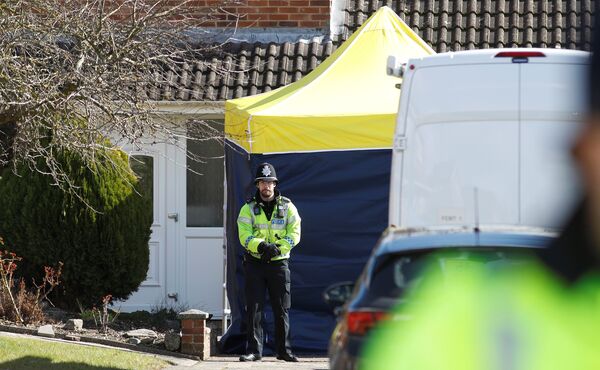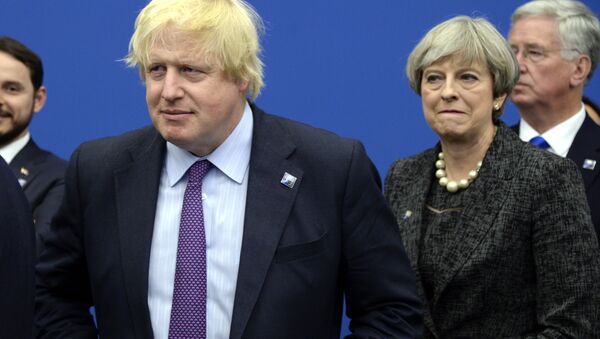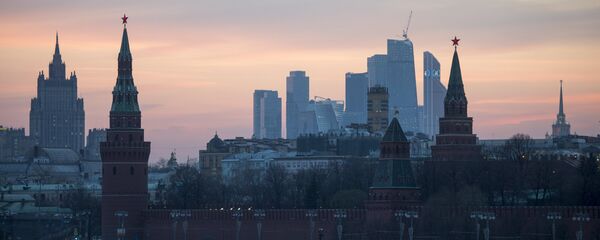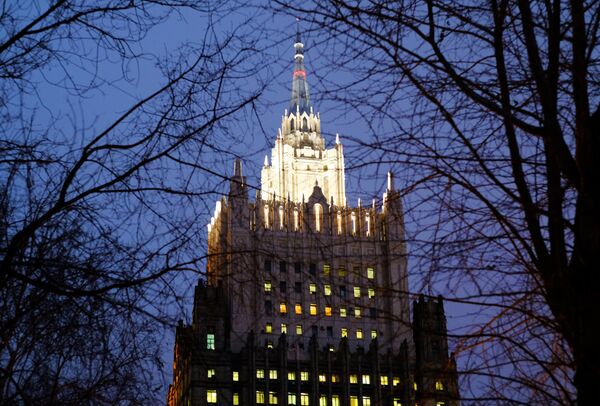The Russian Foreign Ministry responded to the recent decision by nearly two dozen European countries to kick out Russian diplomats on Friday, expelling over 50 diplomats from 18 embassies in Moscow. Earlier, these countries, the US and Australia joined the UK in expelling over a hundred Russian diplomats over the Skripal affair.
Speaking to Radio Sputnik, Dr. Roberts said he was somewhat disappointed by Moscow's tit-for-tat response, even if it was understandable.
Geoffrey Roberts: I wouldn't expect anything more to [occur] post this development. What generally happens when you have diplomats being expelled is that after a few weeks or months they are replaced by others. So on the quiet, the diplomatic corps in the different countries will be replenished. Because of the bad relations between the United States and Russia and Britain and Russia, that may not happen in the case of those two countries.
Sputnik: What do you make of the Russian response, particularly toward the UK, in giving the UK a month, rather than a week, to decide who goes? Is that a bit softer than the UK's reaction?
Geoffrey Roberts: The UK specifically expelled 23 Russian diplomatic personnel. My understanding is that what is happening in Moscow is that the Russian Foreign Ministry has said that they want the British Embassy in Moscow reduced down to the same level as the Russian Embassy in London, which might actually mean that more British diplomats have to leave Moscow. So I wouldn't interpret it as being a softer move in any way.
I was hopeful that Russia wouldn't elect for tit-for-tat expulsions. I was hoping that they might moderate their position a bit and maybe treat some of the countries a bit differently. But it appears that the Russian Foreign Ministry has decided to expel an equivalent number of foreign diplomats from Moscow.
Sputnik: You say that you hoped that Russia wouldn't take a mirrored response, but on the other hand, if Russia is denying that they had anything to do with the Skripal case, wouldn't that almost be like admitting that they were involved?
Geoffrey Roberts: The Russian response is perfectly logical and perfectly reasonable. The only thing I'll say is, so what happened was that the British government accused Russia of poisoning these two people in Salisbury. They made accusations before an investigation had been completed, before the evidence had been presented – a clear kind of rush to judgement.
They took this action in expelling Russian diplomats, and then they went to their Western allies and asked them for support. But if you look at it, the only British ally that's really given equivalent support is the United States. But actually that action has got a lot more to do with Russiagate and has very little to do with what's happening in the British case.
So the response of Britain's EU allies and other Western allies was actually not as much as one might have expected, if there were a true conviction that the Skripals were poisoned as part of a Russian state operation in Britain. In that context, maybe, the Russian Foreign Ministry might [have moderated] its response to these expulsions.

Sputnik: What is your take on why all of this action was taken prior to the completion of the investigation?
Geoffrey Roberts: This percipient British action has tainted the whole investigation; it has politicized what should have been a police investigation. So whatever comes out of this investigation, there is forever going to be the suspicion hanging over it that the conclusions are politically driven conclusions.
As to why this has happened, I think there are two main points here. Firstly, it's a great piece of political theatre. It's a great piece of misdirection – a great distraction from the whole problem of Brexit. Theresa May and Boris Johnson are much more in their comfort zone denouncing Putin and denouncing Russia than they are dealing with the thorny problems of the Brexit negotiations. It's a politically driven distraction from the whole issue of Brexit.
The problem with that anti-Russian, anti-Putin narrative, in my point of view, is that it's false in all its particulars. This latest case, the Skripal poisoning affair, is probably one of the most egregious episodes or expressions of this false anti-Russia, anti-Putin narrative.
The views and opinions expressed by Dr Jeoffrey Roberts are those of the speaker and do not necessarily reflect those of Sputnik.




